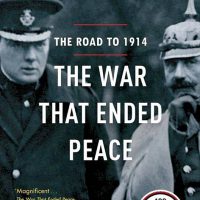I was born during the reign of Britain’s King George VI but knew him only from his face on postage stamps contained in my paltry collection. In college, I developed a passion for history. Somehow I overlooked King George VI while I focused on another hero, Winston Churchill. The movie, “The King’s Speech” opened my eyes, and I wanted to know more about this unsung and dynamic monarch, so I read Sara Bradford’s biography “King George VI” and Mark Logue’s book of the same name as the movie. The subtitle of Logue’s book is “How One Man Saved the British Monarchy.”
Why do I admire this king and now include him as a hero? He suffered from a neglectful family as well as from a speech impediment which severely handicapped him in performing his royal duties. He addressed his stuttering and overcame it through speech therapy from Lionel Logue, Mark’s dad.
I concluded that without King George VI, World War II might have experienced a different outcome. His brother, King Edward VIII, didn’t inherit a level of intelligence, humility, or a work ethic from the royal line. He leaned towards Germany and Adolph Hitler. The war might have had a different twist if Edward remained as the crowned head. We should thank Mrs. Simpson for marrying him which brought about the abdication.
King George VI ascended the throne in 1936 and dedicated himself to his people, country, and commonwealth. When he was crowned, the monarchy was at a low point. Through his abilities, he restored its prestige. He traveled to Canada and the United States, the first reigning sovereign to visit our shores. He forged a close relationship with President Roosevelt which helped both sides during the war.
King George VI and Winston Churchill established the closest personal relationship between monarch and prime minister in modern British history. During the shelling of London, he and his family became symbols of national resistance. They stayed in London and accepted rationing. He visited the people in the bombed areas. He called on military units in England and even travelled to Normandy, Italy, and North Africa. His leadership and morale building inspired the home effort.


